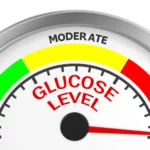
Menu

by
|
We all experience stress in our day-to-day lives. Chronic stress, on the other hand, can pose serious health risks and annoying symptoms like anxiety, mood swings, fatigue and weight gain, not to mention stubborn belly fat. If you are feeling lethargic, tired all the time or anxious, wondering why can’t I sleep or frustrated because you can’t lose weight, it’s time to take stress overload and managing cortisol (the stress hormone) levels seriously.
Known as the stress hormone, cortisol is released by the adrenal glands to produce energy throughout the day, but it also produces more cortisol (and energy) in response to stress (the fight or flight response). During a stressful event, the pituitary gland produces a hormone (adrenocorticotropic hormone), which triggers the adrenals to produce more cortisol.
Normal production of cortisol helps the body maintain appropriate levels of energy throughout the day. Since it does play a key role in energy production, you DO want cortisol to be higher when you wake up in the morning to take on the day. You DO NOT want cortisol levels raging when you’re trying to get to sleep at night or in the wee hours of the morning when you’re trying to stay asleep.
Ideally, the adrenal glands will produce the amount of cortisol you need, when you need it, with higher levels in the morning that level off throughout the day and taper off in the afternoon and evening.
[Include chart that shows good and bad cortisol levels if you can find one? Or at least good?]
Healthy function of the adrenal glands also works in tandem with two other energy producing systems in the body and the hormones they produce: the pancreas, which manages insulin production, and the thyroid, which produces thyroid and is the driving force behind the body’s metabolism.
Together, the three systems make up TRIAD 1 in the Metabolic Code, an in-depth, multi-faceted assessment EVEXIAS uses to identify underlying issues that prevent our patients from achieving optimal health.
When any one of the three energy-producing systems—adrenals (cortisol), pancreas (insulin), thyroid (thyroid)—gets out of whack, the performance of the other two systems can become compromised.
For example, elevated cortisol levels can negatively impact blood sugar regulation and slow down metabolism, which increases inflammation in the body and the risk for disease. Low thyroid levels can lead to insulin resistance, insomnia, fatigue and more, while both the thyroid and adrenal systems play key roles in the metabolic performance of the pancreas.
 The elevated cortisol levels associated with chronic stress can be triggered by emotional stress, excessive exercise, too little sleep, nutrient deficiencies, environmental toxins and certain disease states. You may end up producing higher levels of cortisol than your body needs and find your energy levels elevated during the wrong time (or times) of the day.
The elevated cortisol levels associated with chronic stress can be triggered by emotional stress, excessive exercise, too little sleep, nutrient deficiencies, environmental toxins and certain disease states. You may end up producing higher levels of cortisol than your body needs and find your energy levels elevated during the wrong time (or times) of the day.
This could result in a disruption in the normal cycle of cortisol production, which may cause you to produce high levels of cortisol into the evening and overnight.
Clearly, ongoing stress and disruption in the proper levels of cortisol production throughout the day can leave you unable to sleep, feeling tired during the day and moody. But what about the anxiety, weight gain and increased belly fat often associated with stress? Symptoms which have also been show to wreak havoc on the immune system, inflammation and disease response?
Research published in the journal Psychosomatic Medicine shows that stress-induced cortisol secretion is consistently greater among women with higher central fat distribution (belly fat). While it isn’t much of a stretch to link stress with anxiety, studies like this one support that assumption, even finding “increases in salivary cortisol and alpha amylase, as well as increases in blood pressure, heart rate, and subjective distress,” among subjects exposed to a socially stressful event.
Whether you have high functioning anxiety or have been diagnosed with generalized anxiety disorder, the sooner you speak with a healthcare practitioner about your condition and the potential causes (like low cortisol levels), the sooner you will be able to find a resolution to your anxiety, and its impact on your mental and physical health.
Some people believe that when the adrenal glands become overtaxed due to chronic stress, they will stop producing adequate levels of (or any) cortisol, a condition often referred to as adrenal fatigue. While adrenal fatigue hasn’t officially been recognized by the medical community, chronically low levels of cortisol can be problematic as well.
However, low cortisol levels can occur for a number of reasons, including Addison’s disease, which is usually caused by an autoimmune disease that damages the adrenal glands. According to the National Institute of Diabetes and Digestive and Kidney Diseases (NIDDKD), causes of secondary adrenal insufficiency and low cortisol levels may include:
While stress overload may ultimately overtax the adrenals and cause any of the above symptoms, it’s important to run thorough lab tests to uncover the root cause of low cortisol levels or “adrenal fatigue.” These varied symptoms are associated with a wide range of diseases and health conditions, so it’s important not to jump to conclusions and a misdiagnosis.
If your cortisol levels are off the charts and your cycle of cortisol production is out of whack, it’s essential to find out what got you to that state in the first place. The body is comprised of numerous interconnected systems that can go awry for a number of reasons, stress being one of many reasons.
Stress can lead to a host of health problems (learn how stress affects TRIAD 2, the gut, brain, immune connection here) but other factors can compound those problems, making it very difficult for the body to heal. If you believe stress overload is a real issue for you, and you have symptoms of high cortisol levels, there are steps you can take to get your body back into balance.
The first step to take to figure out what’s making you feel sick, tired, anxious and struggling to lose weight (among other health concerns) is to undergo lab testing. Lab tests reveal a multitude of things, including nutrient deficiencies and hormone imbalances. Hello! cortisol, insulin and thyroid—not to mention sex hormones like testosterone and estrogen. And that’s just the tip of the iceberg when it comes to the Metabolic Code.
At EVEXIAS, our experienced health practitioners review and analyze our in-depth lab results to determine the root cause of each patient’s health issues. From there, the practitioner can prescribe a course of treatment to help the patient learn how to manage stress, heal their body and get back on track toward a healthy life.
A customized approach. Here at EVEXIAS, we believe every patient is 100% unique, which is why we also know one-size-fits-all treatment plans don’t work. We work closely with patients to learn about their symptoms, concerns and health goals. That insight along with the in-depth lab work we do, allows us to create a customized course of treatment for each patient.
Depending on the patient’s unique needs, our practitioners may prescribe:




